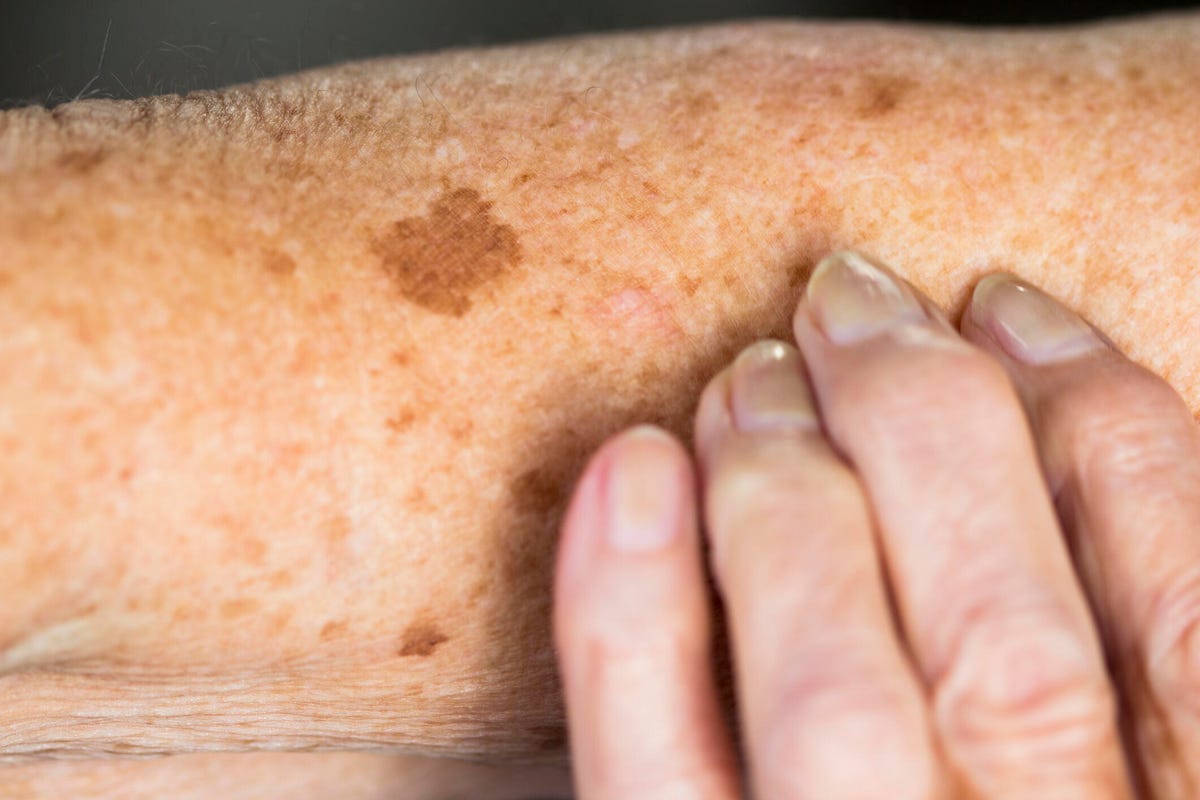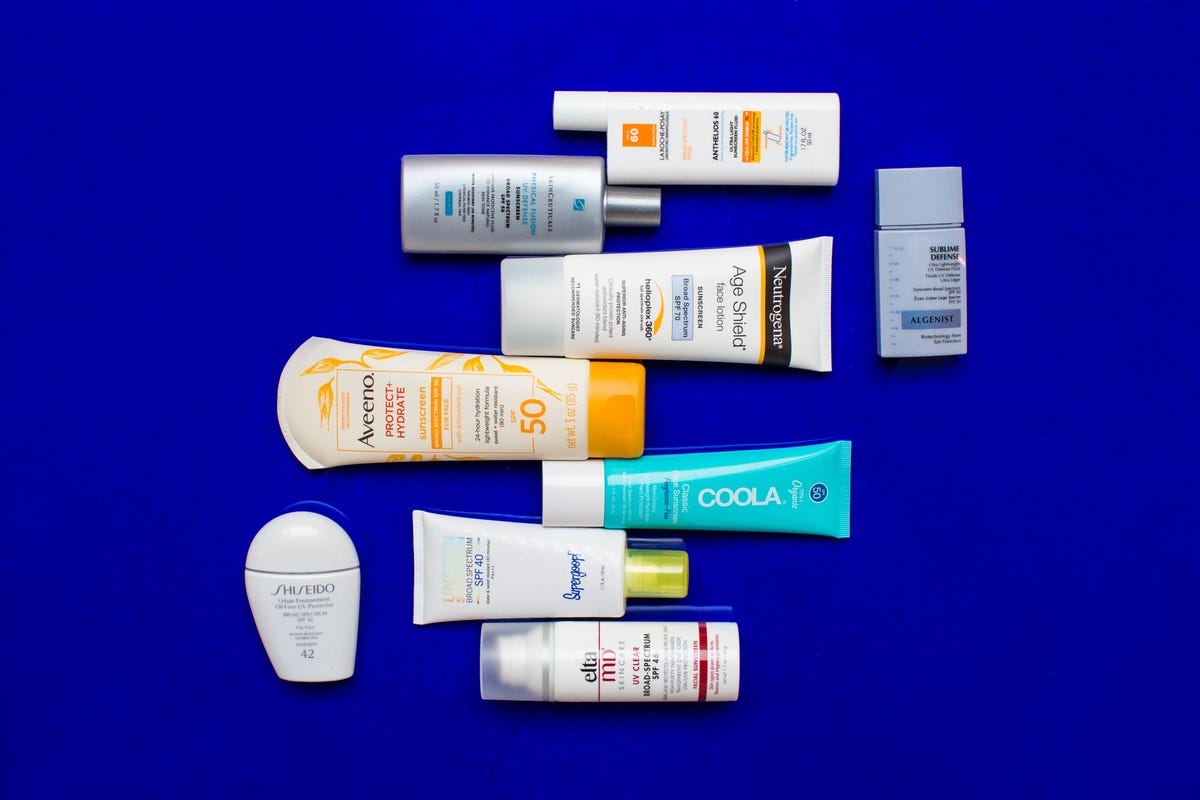Now that summer is coming to a close, many people are likely noticing changes in their skin -- whether it's a simple tan or more serious sun damage. But aside from regularly getting checked for skin cancer and wearing daily SPF (even when indoors), what else can you do about sun damage?
Tanning is a common cause of sun damage. The American Academy of Dermatology explains that there is no safe tanning -- all tanning causes skin damage. However, is it possible to reverse these effects for those with sun damage on their skin? We spoke with experts to find out more about all things sun damage.
What is sun damage?
"Sun damage" is a catchall phrase that refers to any harm done to your skin by the sun. It manifests in several ways, said Dr. Susan Bard, a board-certified dermatologist at Manhattan Dermatology Specialists.
"Sun damage can present as dark spots, aberrant blood vessels or ruddiness or with skin laxity and wrinkles," Bard said. "It can also present with precancerous skin lesions that feel like little scabs on the skin."
Dr. Hadley King, a board-certified dermatologist in New York City, said sun damage often looks different across skin tones. "In lighter skin types, thinning of the skin, fine lines and discolorations will be apparent," she said. "In darker skin types, discolorations may be the most prominent feature of sun damage."
The technical term for these changes is "photoaging." While most people know photoaging as the face of sun damage, other types of damage can occur, depending on which type of UV ray enters the skin.
"UVA rays are generally linked to the aging of skin cells and tend to be the cause of wrinkles, sunspots and other signs of sun damage," King said. "UVB rays, on the other hand, are the principal cause of sunburns, directly damage DNA in skin cells and are linked to most skin cancers."
It is also important to note that everyone is at risk of sun damage and, as a result, skin cancer. All ages, genders, ethnicities and skin colors are at risk of sun damage if exposed.

King and Bard both say it's possible to partially reverse -- a better word is "treat" -- some types of sun damage. If you have discoloration, wrinkles, fine lines or other characteristics of photoaged skin, a dermatologist can help you address these types of sun damage.
"It is possible to reverse [sun damage] to some extent utilizing lasers, chemical peels and certain topical medications to destroy dark spots and vessels, encourage collagen deposition and remove the damaged layers of skin," Bard said. She clarifies that combining multiple treatments is usually required to address the different components of sun damage.
Certain at-home treatments might help, too. King said humectants and emollients can hydrate and smooth the skin to keep it looking plump, which is particularly important for dry skin. Anti-aging topicals, such as retinoids, antioxidants, peptides and alpha-hydroxy acids can also help, King said.
Topical retinoids are the most proven anti-aging topical option, she said. These compounds are "very powerful and able to produce significant changes in the skin. They increase the turnover of skin cells, increase collagen production and decrease discoloration," as well as reduce pore clogging, King said.
Your dermatologist can help you personalize a treatment catered to your specific needs.
But don't get too excited
While you can treat the aesthetic effects of sun damage, you unfortunately can't reduce or reverse DNA damage caused by the sun, Bard said. "Once DNA mutation has occurred due to UV irradiation, there is no way to undo that. The cell needs to be destroyed by an outside modality or by the body," she explains.
UV radiation is a known human carcinogen, King said. According to the Skin Cancer Foundation, your risk for melanoma doubles if you have more than five sunburns. Just one sunburn that blisters in childhood or during your teen years can more than double your risk of developing this deadly skin cancer later on.
How to prevent sun damage

Prevention is key for avoiding sun damage from both UVA and UVB rays. Daily protection is critical, King said, because "much of the sun damage that accumulates in our skin is the result of daily incidental sun exposure."
King cited an Australian study that tracked the skin of people who used sunscreen every day, regardless of the weather or their daily activities. The researchers compared this to the skin of people who only used sunscreen on particularly sunny days or when they felt they would be spending significant time outside. The results? The skin of the people who used sunscreen every day aged significantly better.
That is why you need sunscreen that is at least SPF 30. Make sure this is applied on exposed skin and re-applied according to package instructions. Even on a cloudy day, you should still wear sunscreen because clouds do not protect from skin damage and UV rays can still penetrate through. To further protect yourself, you can also wear wide-brim hats, sunglasses and clothing that covers and protects your skin.
Don't wait until you see signs of sun damage to take care of your skin. Protecting yourself from UV rays is the best way to keep your skin young and healthy.
Read more: 10 Sunscreen Myths to Stop Believing This Summer
Tips to protect your skin from the sun
King and Bard offer the following sun protection skin care tips:
- Wear sunscreen on any skin exposed to direct sunlight -- not just when you go to the beach. Daily SPF is essential.
- Wear hats and sunglasses to protect your eyes and face.
- Seek shade or cover if the sun is harsh.
- Try to avoid direct sunlight at peak hours (this varies depending on where you live but usually occurs in the afternoon).
- Wear light, breathable, long-sleeved shirts and pants when possible, especially if you're particularly susceptible to sunburns.